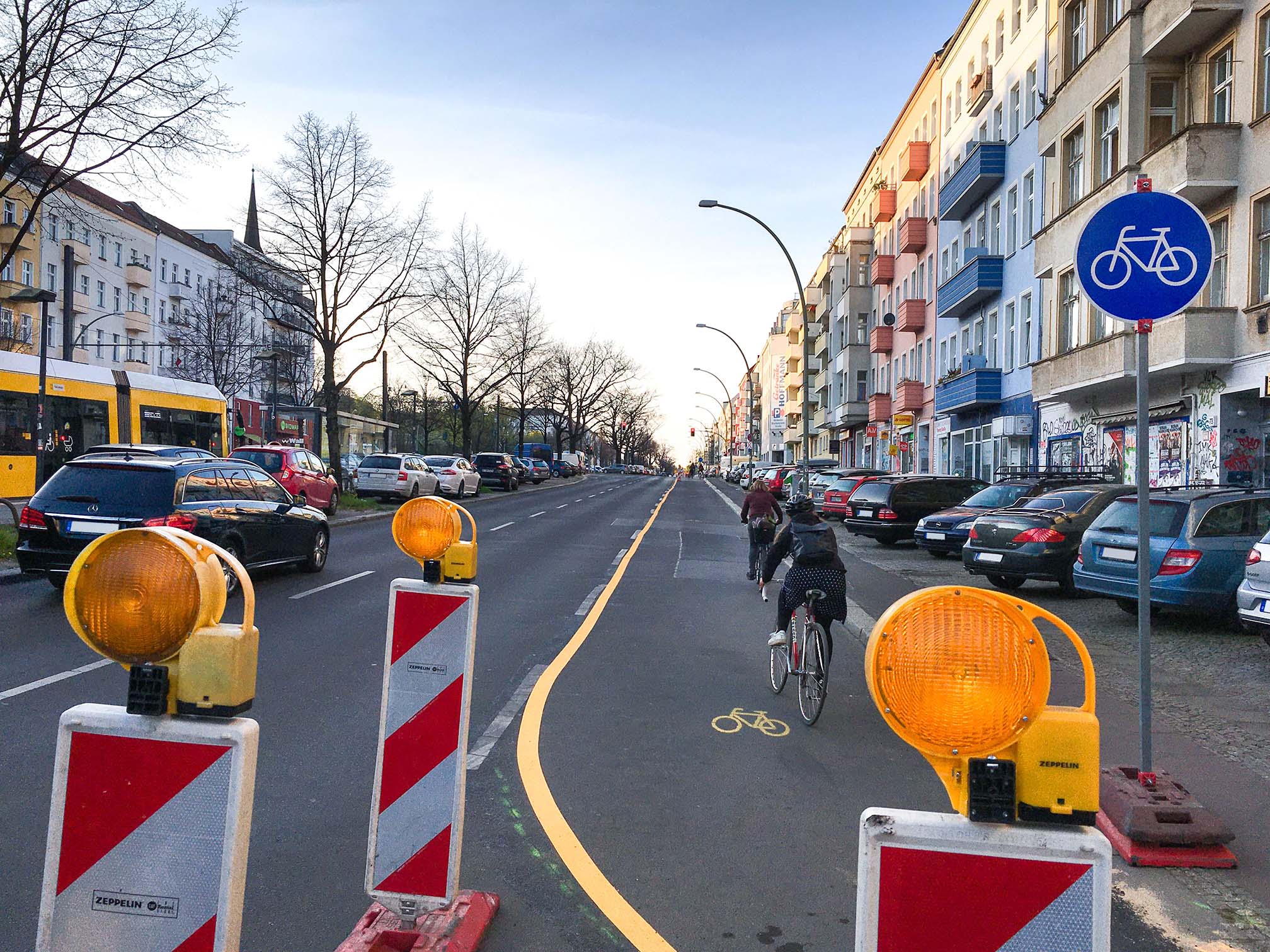Living Lab
EXPERI
The transport transition as a social-ecological real-world experiment
The EXPERI team is researching how socio-ecological transport transition can succeed in metropolitan regions. Up to now, walking and cycling have been at a clear disadvantage compared to car traffic in the distribution of space in urban areas. The increasing pressure to act on climate protection is also leading to a rethinking of the transport sector in politics and society. In 2018, the city state of Berlin became the first federal state to pass a Mobility Act (MobG), which was initiated by civil society.
The MobG aims to make the mobility of Berliners safer, more reliable and more barrier-free. The MobG provides for a massive expansion of the bicycle infrastructure while strengthening pedestrian traffic and public transport.
Especially in the Corona Crisis the promotion of active mobilities (walking and cycling) are very important as they have a low risk of contagion, enable everyday movement and are climate-friendly. Therefore, the Experi-Team includes the new pop-up cycling infrastructures in Berlin in their empirical research
Thematic approaches:
#Verkehrswende #BerlinerMobilitätsgesetz #Co-Design
Spatial approaches:
#transportinfrastructure
Contact:
TU Berlin (FG Arbeitslehre, Technik und Partizipation) – Dr. Sophia Becker, Dipl.-Psych.



Leave A Comment
You must be logged in to post a comment.